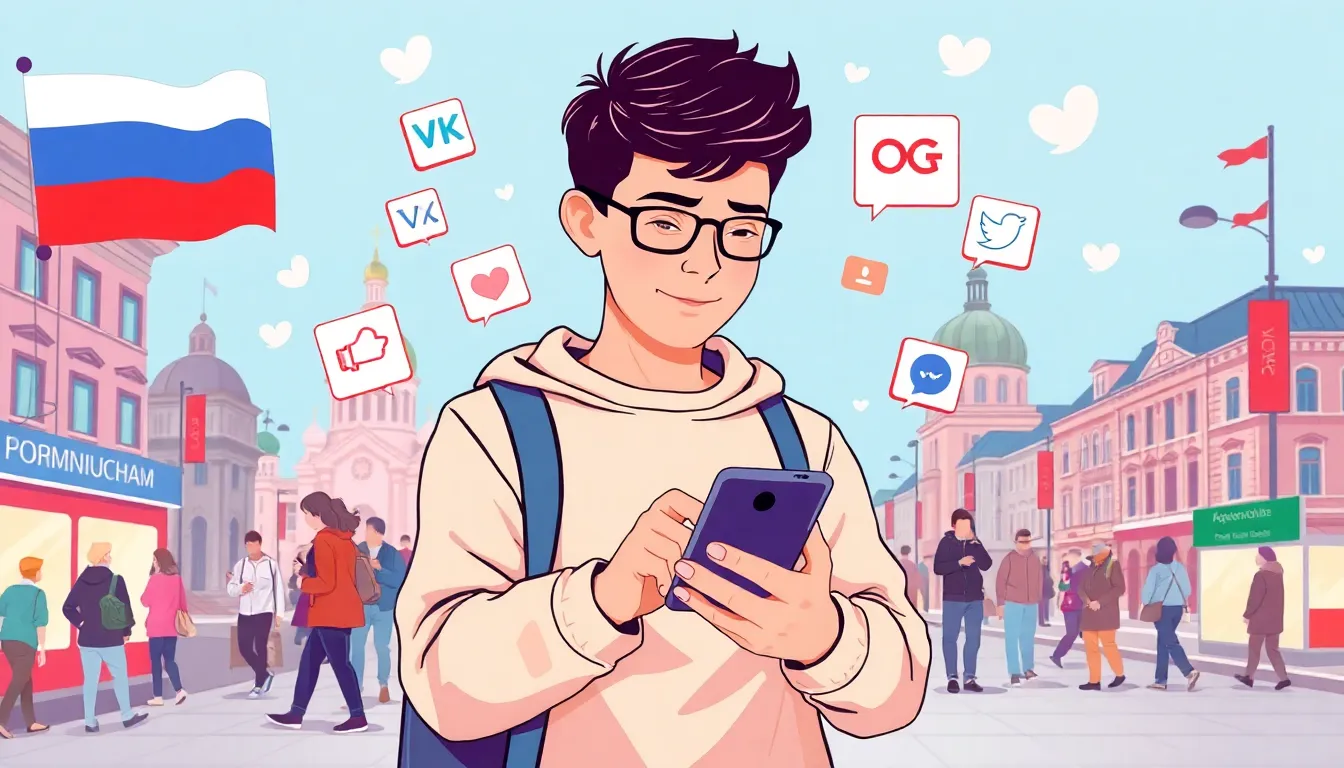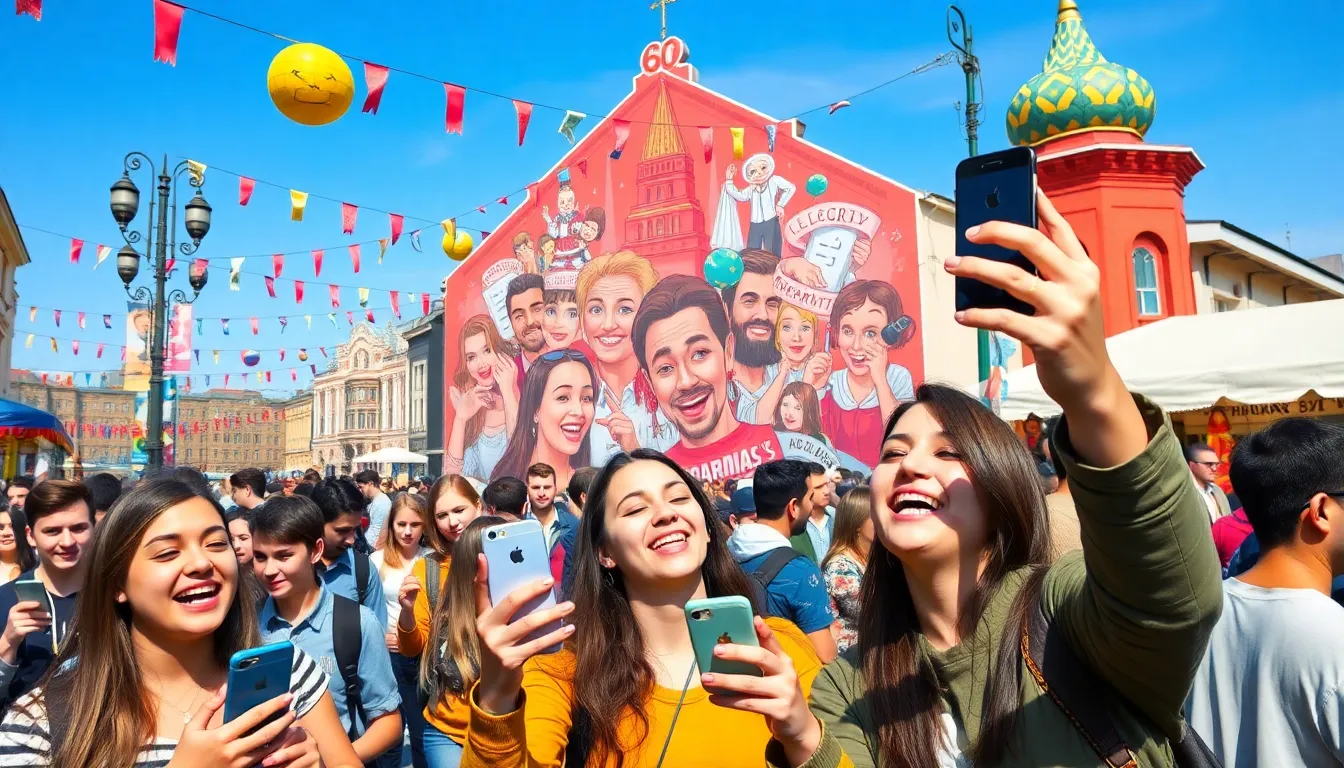In the vast digital landscape, Russian social media stands out like a bear in a ballet class—unexpected yet captivating. With platforms that blend the familiar with the unique, users find themselves navigating a world where memes, politics, and the occasional cat video converge in a delightful chaos.
Table of Contents
ToggleOverview of Russian Social Media
Russian social media platforms feature a mix of familiar and unique elements. Users engage with various types of content, including memes, political discussions, and lighthearted posts like cat videos. VKontakte (VK) stands out as the dominant platform, it hosts user-generated content, music, and forums. This allows users to create and participate in diverse communities.
Odnoklassniki (OK) caters primarily to older generations, focusing on connecting users with long-lost friends and family. Telegram offers a secure messaging option and channels for news and entertainment, attracting users seeking privacy and information. Instagram remains popular despite government scrutiny and attempts to control content.
Yandex.Zen operates as a content discovery platform, curating news articles and blog posts tailored to users’ interests. Users appreciate this personalized approach for accessing a wide range of topics. Each of these platforms fosters a unique user experience, significantly contributing to the vibrant social media landscape in Russia.
Government influence plays a crucial role in shaping content and user interactions. Regulations often mandate that social media platforms store user data locally. Users face limitations on certain topics, which impacts discussions and community dynamics. Despite these challenges, the creativity and adaptability of Russian users thrive, resulting in a colorful tapestry of content and engagement within the social media sphere.
Popular Platforms in Russia

Russian social media platforms offer diverse functionalities, catering to various demographics. Each platform embodies unique characteristics and user engagement styles.
VKontakte (VK)
VKontakte stands as the most prominent social media platform in Russia. Designed similarly to Facebook, it facilitates user interaction through community groups and event planning. Users generate a wealth of content, ranging from music to videos, enhancing the platform’s appeal. VK also offers integrated messaging capabilities, fostering real-time communication among friends and acquaintances. The platform is particularly popular among younger users, reflecting trends and interests through their posts. Approximately 97 million active users engage with VK monthly, demonstrating its significant role in Russia’s digital landscape.
Odnoklassniki (OK)
Odnoklassniki primarily targets older generations, focusing on reconnecting friends and family members. Unlike VK, it emphasizes nostalgia and personal connections, allowing users to share photographs and life updates easily. This platform’s straightforward layout encourages user retention, as individuals prefer simpler navigation. About 37 million monthly users appreciate its familiar structure and community-centric approach. Traditional values resonate throughout OK, creating a supportive atmosphere for discussions among users. Engaging features such as polls and games enhance interaction, catering to its target audience’s preferences.
Unique Features of Russian Social Media
Russian social media showcases distinctive characteristics shaped by local culture and regulatory influences. These platforms reflect the unique social and political environment in Russia.
Influence of Local Culture
Local culture heavily influences the content shared on Russian social media. Humor plays a vital role, often manifesting in memes that comment on daily life and politics. Seasonal events and holidays see personal stories and cultural references prominently featured, fostering community connections. Users participate in discussions that resonate with regional issues, intertwining various cultural narratives. Content creators prioritize relatable themes, creating compelling engagement for audiences. Furthermore, the integration of video content has surged, reflecting the rising popularity of visual storytelling within Russian society.
Privacy and Data Security Concerns
Privacy and data security rank high among concerns for Russian social media users. Government regulations emphasize data localization, requiring platforms to store user data within Russia’s borders. This policy raises apprehensions regarding surveillance and the potential misuse of personal information. Users express worry over how their data might be monitored by authorities, leading to more cautious online behavior. Security features, such as end-to-end encryption on Telegram, gain appeal as users seek safer communication options. Despite these concerns, many still engage with platforms, navigating the balance between social interaction and privacy.
The Role of Social Media in Politics
Social media plays a crucial role in shaping political discourse in Russia. Engaging platforms allow users to express opinions, organize events, and mobilize actions.
Political Campaigns and Activism
Political campaigns leverage social media to connect with younger audiences. Candidates utilize platforms like VK and Instagram to communicate directly, sharing updates and engaging voters. Activism flourishes through online movements that rally support for various causes. Hashtags and viral content amplify messages, creating a sense of community. Protests often gain traction as users share information, demonstrating the power of digital organization.
State Control and Censorship
State control significantly impacts content on Russian social media. Government regulations dictate what can be discussed, restricting sensitive topics. Content is often removed or flagged, creating an atmosphere of caution among users. Censorship requires platforms to comply with local laws, which can stifle free expression. Despite these challenges, users adapt, finding ways to bypass restrictions and share ideas. Adaptation leads to a resilient online community that continues to voice dissent.
Conclusions
Russian social media presents a unique blend of creativity and resilience amid regulatory challenges. Platforms like VK and Telegram not only serve as spaces for entertainment but also play a vital role in political discourse and community engagement. Users navigate a complex landscape shaped by local culture and government oversight, often finding innovative ways to express their thoughts and connect with others.
The dynamic nature of these platforms fosters a vibrant online community where humor and activism coexist. As users adapt to changing regulations and security concerns, the role of social media in Russia continues to evolve, reflecting the broader societal shifts and the enduring human spirit to communicate and connect.

